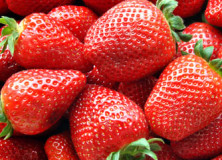
As a result of heart attack or stroke, blood supply to the body’s organs can be disrupted, potentially causing serious organ injury. Michael Murphy from the Medical Research Council Mitochondrial Biology Unit (United Kingdom), and colleagues have discovered that this damage is caused by a build-up of succinate – a chemical that occurs naturally in the body when sugar and fat are broken down to release the energy stored in food, but abnormal accumulation of which occurs when blood flow to an organ is limited. When the blood flow returns, the excessive build-up of succinate interacts with oxygen as the blood rushes into the oxygen-starved tissues. This causes the release of destructive molecules which react with muscle cells in the organ, damaging them. Employing a mouse model, the researchers identified the increase in succinate by measuring a range of different chemicals in the vital organs before and after heart attack and stroke, revealing that organ damage can be reduced with the administration of malonate esters – which halt the build-up of succinate and the resulting release of destructive molecules. Malonate esters are found naturally in fruits such as strawberries, apples and grapes. The study authors submit that: “these findings reveal a new pathway for metabolic control of [reactive oxygen species] production in vivo, while demonstrating that inhibition of ischaemic succinate accumulation and its oxidation after subsequent reperfusion is a potential therapeutic target to decrease ischaemia-reperfusion injury in a range of pathologies.”
Edward T. Chouchani, Victoria R. Pell, Edoardo Gaude, Dunja Aksentijevic, Stephanie Y. Sundier, et al. “Ischaemic accumulation of succinate controls reperfusion injury through mitochondrial ROS.” Nature 515, 431-435, 5 November 2014.


